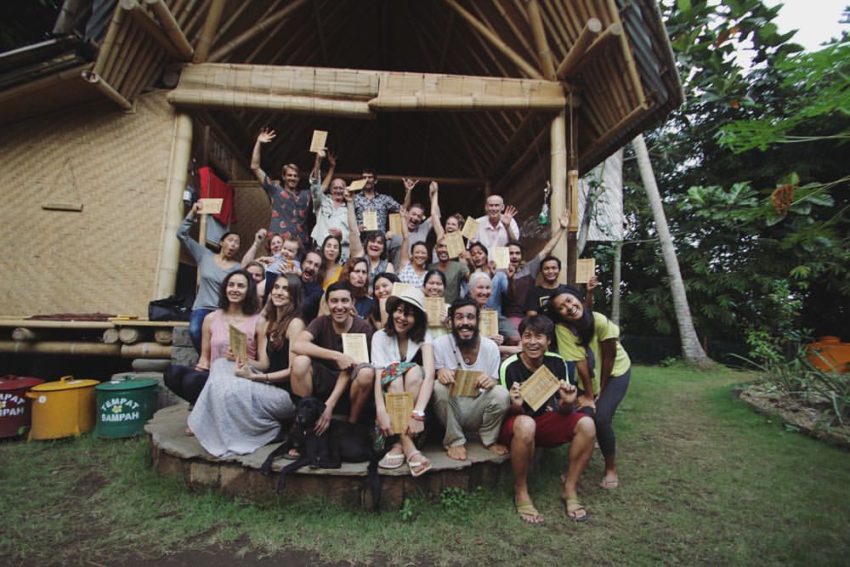Recently, I obtained my Permaculture Design Certificate (PDC) in Sydney with Milkwood, and was keen to find out about the courses offered in the region. Since several people in the urban farming community in Singapore have one, I thought to ask them about their experiences and write a blogpost listing PDC options and reviews.
For those asking, “Do I need a PDC?”, my personal opinion is that while it is a useful course and it sounds very interesting, it’s relevant if you’re designing your own backyard or someone else’s garden/farm space. Otherwise, learning the 12 permaculture principles would suffice, a more affordable option, because the full 14-day PDC will cost you at least $1,000 in course fees alone – my opinion, of course. It greatly helps if one already has gardening/farming experience. In my class, everyone pretty much had experience growing edible plants, and some people had chickens as well as goats, so we didn’t have to keep stopping to explain basic information on growing plants.
When deciding on a PDC, it is worth considering what climate you are thinking of applying your knowledge to – tropical, subtropical and/or temperate, and city or rural? Also, whether you prefer a more hands-on experience in the countryside or a less physically involved experience in the city. They each have their own strengths, so see if any of these 7 reviews pique your interest!
Indonesia
1. Where did you complete your PDC?
Kul Kul Farm at Green School, Bali.
2. Who were your teachers? And how many people were in your class?
Ian Lillington (main trainer), Orin Hardy (practical training), Jodi Roebuck (grazing and bio-intensive gardening) and Scott Godfredson (planning and design). Additional evening talks and speakers – Brendan Morse (permaculture in East Timor), Jeni Kardinell (straw bale housing), Petra Schnieder (water technology), William Ingram (social enterprise and traditional weaving), Dennis Walker (systems approach) and Elora Hardy (bamboo architecture and design).
There were 26 students in total (including myself).
3. How much was it? Did it include accommodation?
The two-week design course is USD1,500. It includes food and tent accommodation. I added another USD150 for better comfort of staying in a twin-sharing bunkhouse.
- Personally, the greatest highlight is getting to visit the Green School and Green Village to physically immerse in the amazing bamboo architecture.
- We were also given a tour of the bamboo factory, PT Bamboo Pure, where different types of bamboo are treated and formed for making furniture and buildings.
- On top of that, a short workshop by native craftsmen using bamboo to create simple building structures, musical instrument, etc.
- I also thoroughly enjoyed myself on a half day tour of the Subak water management system in Bali.
- Another highlight is a trash walk, led by John Hardy, which was an eye-opener on how destructive urbanisation and modern lifestyle can effect a once pristine and harmony with nature island.
- Last but not least, the invaluable friendship of sharing culture and exchanging ideas with fellow classmates from all over the world. I’m so excited by the projects they will bring back home to start upon completion of this PDC!
6. This course is for those who…


